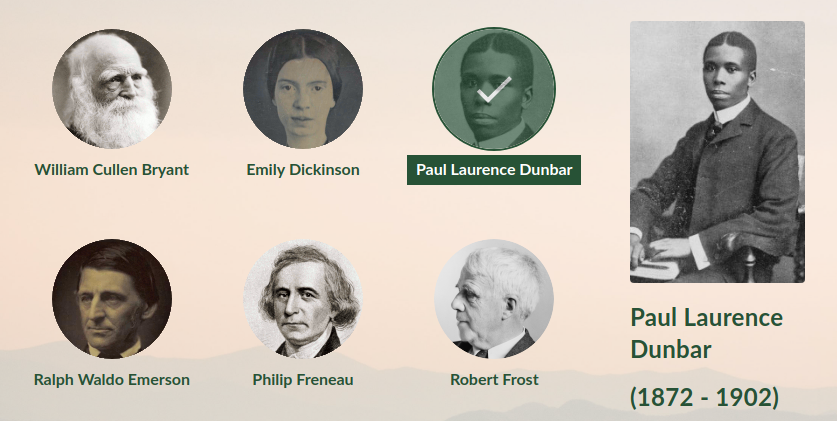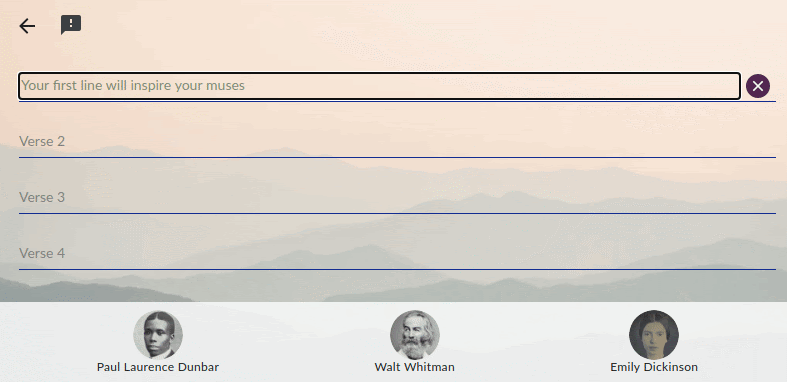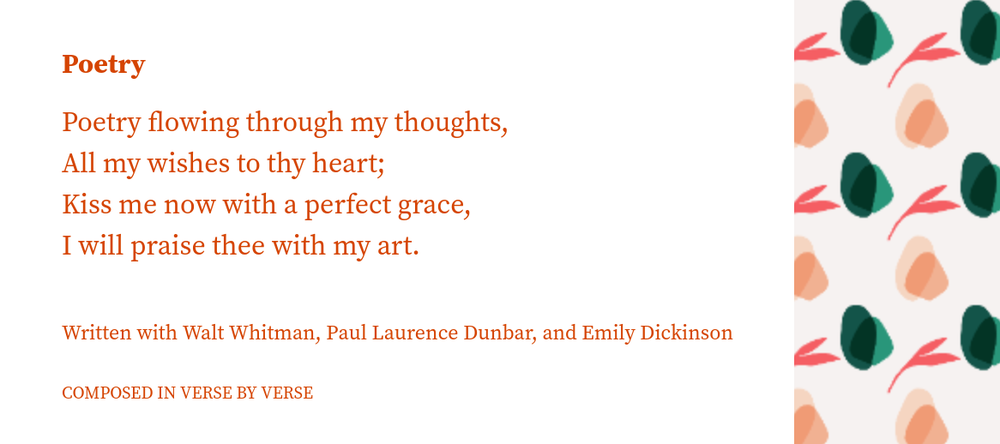Find your inner poet with help from America's greats
Behold! the living thrilling lines
That course the blood like madd'ning wines,
And leap with scintillating spray
Across the guards of ecstasy.
The flame that lights the lurid spell
Springs from the soul's artesian well,
Its fairy filament of art
Entwines the fragments of a heart.
Poetry by Georgia Douglas Johnson
When you write the living thrilling lines of a poem, you put yourself into each verse. Whether you’re writing for family, friends or an audience of thousands, each poem carries a part of you. When composing such a poem, each line is carefully crafted, which requires a lot of creative energy. Verse by Verse can help get those creative juices flowing: it's our experiment using AI to augment the creative process of composing a poem. It will offer ideas that you can use, alter, or reject as you see fit. Verse by Verse is a creative helper, an inspiration—not a replacement. Here's how it works.
Your muses
Using Verse by Verse, you can compose a poem with suggestions coming from some of America's classic poets: Dickinson, Whitman, Poe, Wheatley, Longfellow and others. In order to make this possible, we’ve trained AI systems that provide suggestions in the style of each individual poet to act as your muses while you compose a poem of your own.

Composing
After choosing which poets to act as your muses and the structure of your poem, you can begin composing. Once you’ve written the first line of verse, Verse by Verse will start to suggest possible next verses.

We give you full control of this creative process. You can choose to continue writing your own verses, use one of the suggestions, or even edit one of the suggestions to make it more personal. Once you’re satisfied with your poem, give it a title and finalize it. We give you two options: copy the text itself, or download the poem as an image. In either case, you can easily save the poem and share it with others.

Verse suggestions
Verse by Verse's suggestions are not the original lines of verse the poets had written, but novel verses generated to sound like lines of verse the poets could have written. We did this by first training our generative models on a large collection of classic poetry, then fine tuning the models on each individual poet’s body of work to try to capture their style of writing.
Additionally, to be able to suggest relevant verses, the system was trained to have a general semantic understanding of what lines of verse would best follow a previous line of verse. So even if you write on topics not commonly seen in classic poetry, the system will try its best to make suggestions that are relevant.
Get writing
Verse by Verse can be used as a tool for inspiration, offering suggestions for ways of writing you may have never thought of. You can use it as an aid to learn about these various poets and the styles that they wrote in.
Have fun, and see where it takes you—perhaps down the road less traveled.
by Dave Uthus via The Keyword
Comments
Post a Comment